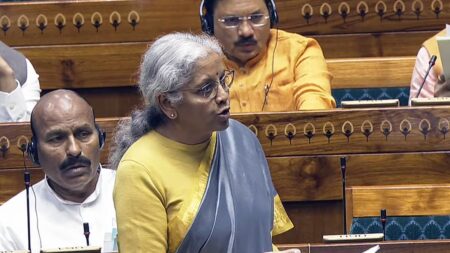
Income Tax Bill 2025: Lok Sabha Panel Backs Deductions for Late Filers
Introduction
Indeed, the Income Tax Bill 2025 marks a pivotal moment in India’s tax reform journey. Consequently, when the Lok Sabha Select Committee reviewed the draft legislation, it zeroed in on practical safeguards for taxpayers. Accordingly, the panel backed provisions allowing deductions even for those filing late. This shift embodies a welcome balance between compliance and taxpayer rights.
Context and Legislative Background
Initially, the government introduced the Income Tax Bill 2025 in February, aiming to replace the decades-old Income Tax Act, 1961, with a cleaner and more streamlined legislation. Moreover, the draft was crafted to be more user-friendly—having fewer sections as well as simplified language and layout.
Subsequently, as Parliament commenced serious scrutiny, the Select Committee chaired by MP Baijayant Panda presented its report. Significantly, this report not only endorsed the broader goals of tax simplification but also addressed finer taxpayer-centric concerns.Select Committee’s Recommendation: Relief for Late Filers
Importantly, the panel recognized that rigid denial of deductions for late filers could impose undue burden, especially on salaried individuals and small business owners. Therefore, it recommended allowing legitimate expense deductions even when the return is submitted after the statutory deadline.
Moreover, this move aligns with another key recommendation: permitting TDS (Tax Deducted at Source) refunds for belated returns. In other words, late filers shouldn’t forfeit their rightful entitlements. Consequently, taxpayers will have the flexibility to claim refunds for excess TDS paid, despite filing delays.
Furthermore, Clause 479 of the bill has been crafted to extend relief to small taxpayers who file returns solely to claim refunds—even if they weren’t legally required to file in the first place. This thoughtful waiver of penalty provisions reflects the committee’s intent to foster fairness across the board.
Why This Matters
First and foremost, these adjustments underscore a crucial shift: the tax regime is evolving from rigid compliance enforcement to a more empathetic, taxpayer-friendly approach. Thus, individuals who file belatedly—in good faith—are not unduly penalized, especially when they’re simply seeking to reclaim their own money.
In addition, this move is especially beneficial to small taxpayers and senior citizens, who may be non-filers by default but are entitled to refunds due to TDS deductions. Accordingly, the reforms remove unjust hurdles that previously deterred voluntary compliance.
Notably, while the committee’s recommendations bring important changes, one significant reform did not make the final cut: allowing refunds without filing a return. As it stands, Section 433 continues to require filing for any refund claim—even if the taxpayer is below the exemption threshold.
Broader Impact of the Income Tax Bill 2025
Besides safeguarding deductions and refunds for late filers, the Income Tax Bill 2025 includes several major reforms:
- It preserves the ₹12 lakh income exemption threshold and retains Section 87A rebate provisions, ensuring tax relief for middle-income earners.
- Further, the bill slashes the number of sections from over 800 to approximately 536, employs organized chapters, and enables faceless, digital assessments to streamline compliance.
- Additionally, clearer rules on pre-construction interest, standard deduction for house property income, and definitions aligned with existing law minimize confusion for taxpayers.
Conclusion
To sum up, the Income Tax Bill 2025, by easing constraints on late filers, signals a more thoughtful and inclusive taxation framework. Not only does it simplify processes, but it also affirms the government’s intent to protect taxpayer rights and encourage compliance—thus bridging the gap between regulation and fairness.
Moving ahead, as this bill transitions into law, it promises to usher in a more transparent, equitable, and user-friendly tax system for India.
Also Read: Financial Structure of Amul: The Backbone of a Dairy Revolution